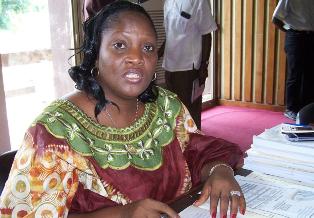Editorial: The Case of Weajue & Mano
Today, the two firms involved in the title dispute over the rich gold mine located in Gola Konneh District, Grand Cape Mount County are to begin negotiation – at least at the behest of the government.
The two, Weajue Mining Company, a predominantly indigenous own, and Mano River Resource/Bea Mountain Mining Company have been engaged in this title dispute since 2007, when Weajue attempted to resume its mining activities at the end of the civil crisis here.
Documentary evidence, confirmed by findings of officials of the Lands, Mines and Energy Ministry show that Weajue Hill has the right to the 14 claims, which covers 350 acres since 1973 and had obtained a class “B” license in 2007.
The question now is if there is documentary evidence, coupled with findings by officials of government that Weajue Hill has right to her claims, why has it not been given the go ahead to continue with the job?
Does this point to the fact that the government lacks the political will or are there more to its unwillingness to ensure that Weajue be given its entitlement?
There are speculations, though unconfirmed that Weajue lacks the capacity as an indigenous company to carry out industrial mining in the area and therefore since Mano/Bea has such capacity it should be ready to buy Weajue out.
Whether this is true or not, the logic here does not hold. If foreign investors that lack the capacity have come here to win bids and put same on the stock market to scout foreign partners, why local investors cannot be afforded similar opportunities, but are often told they lack capacity?
[bsa_pro_ad_space id=1]
Now how can these institutions build their capacities when they are denied the least opportunities that exist?
Look at the Liberian Engineering Industry for instance; this industry is dying slowly, all because they have not been given the opportunity to build their capacities – no contract.
We believe that it is time that our government gives preference to local businesses even if it means exposing them to secure foreign partnership rather than frustrating their efforts.
And as the widow of the late Speaker Samuel D. Hill puts it, “I don’t think it is fair to me to take away my right over these people (Mano). It is not fair to me, as a senior citizen…Mano does not own the place. They (Mano) should be running after us to negotiate,” she said.
Time to time, Liberians prefer giving preferential treatments or fronting on behalf of foreigners at the detriment of their fellow countrymen. One thing we need to hammer into our heads as a country is that foreigners will always take their profits out of here, leaving this place bare.
The experiences of LAMCO, Bong Mines and other erstwhile concessions are still fresh to forget.
Unless the government and all other partners concerned act concertedly to give preference to Liberian-owned businesses over foreigners, the Visioning 2030 campaign, geared at creating a middle class would become mere illusion.




















